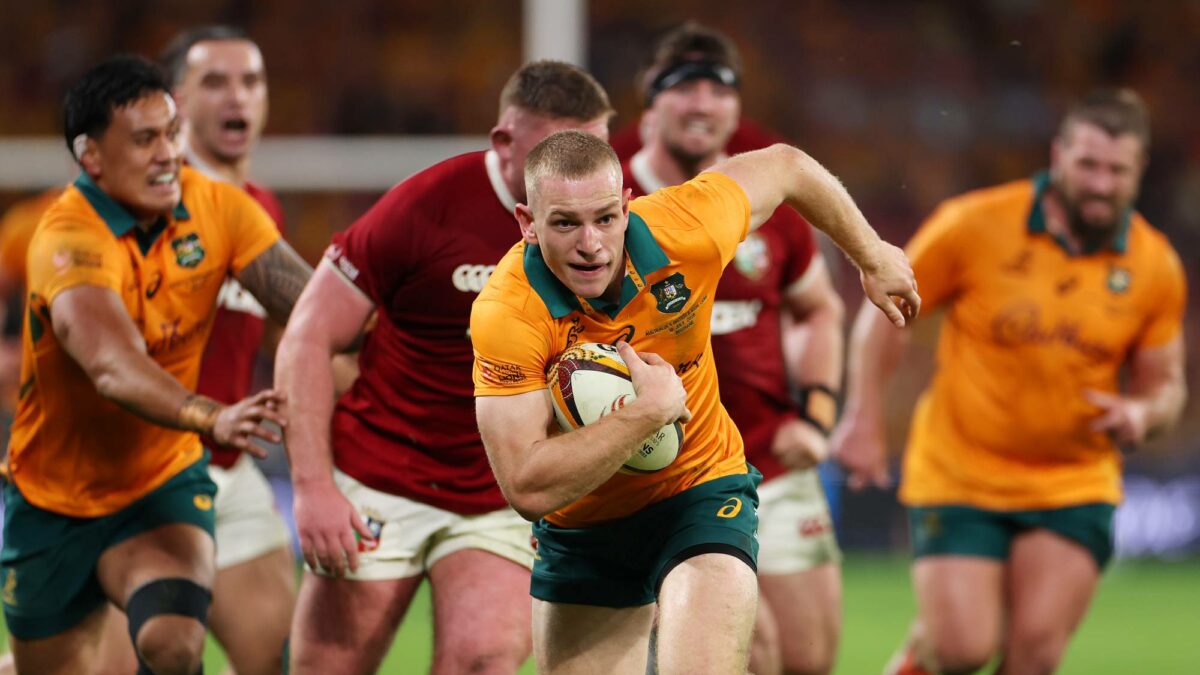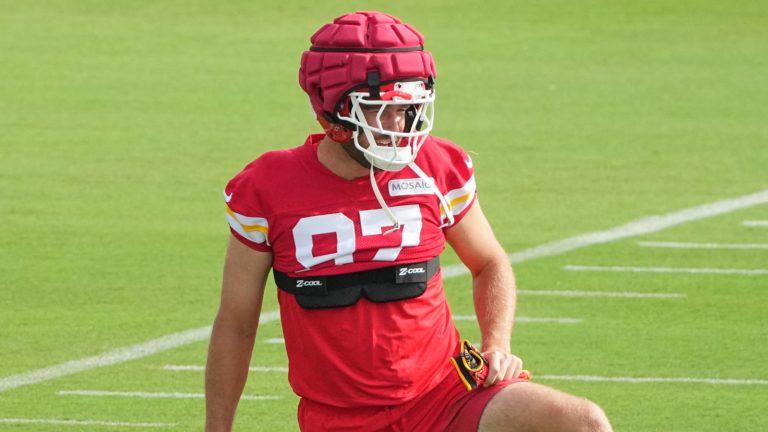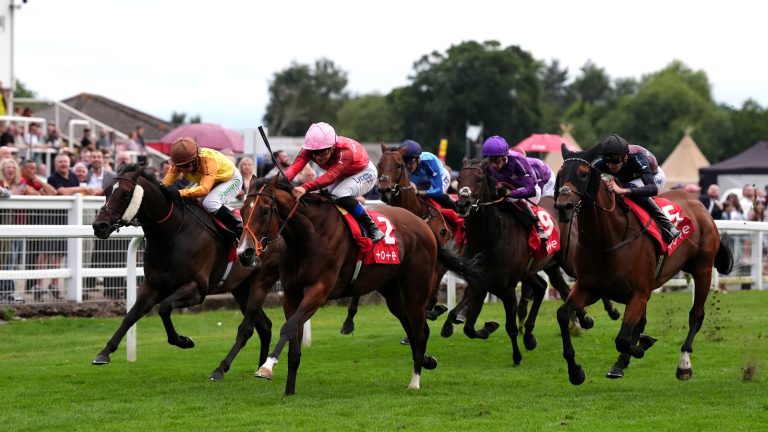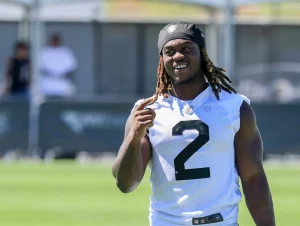Earlier this year, before re-signing in New Zealand, one current All Blacks star was offered a jaw-dropping deal worth around $12 million over three years to join R360. He turned it down.
Antoine Dupont is believed to have been approached to consider a move to the rebel league.
They might not have joined the R360 revolution, but The Roar understands as many as 148 players have signed conditional contracts expressing their desire to join the league if certain requirements are met by September 30. The competition is hoping to sign 280 male players to fill eight rosters.
It’s believed that high-profile coaches, including former Wallabies coach Michael Cheika – without a role since leading Leicester to the English Premiership final – have also been approached.
South Africans and Argentinians, who can play anywhere across the world and still earn national selection, have been targeted. Former All Blacks, too. As have British and Irish Lions players.
It’s believed a couple of current Wallabies have also signed up to the league. Others are said to be interested.
Several more, including Fraser McReight and Len Ikitau, are understood to have turned down approaches. Both were offered deals of more than $1m per season, sources have told The Roar.

Fraser McReight is one of two Wallabies to have turned down R360 advances, The Roar understands. (Photo by Brett Hemmings/Getty Images)
Half-a-dozen NRL stars, including Ryan Papenhuyzen, Kayln Ponga, Roger Tuivasa-Sheck and Nelson Asofa-Solomona, are believed to have signed conditional agreements to join the league. Some met with R360 organisers in recent weeks, with a who’s who of rugby in Australia for the Lions series.
Max Jorgensen – the 20-year-old Wallabies sensation, who scored twice against the Lions – remains the ideal target.
Off contract in 2026, the best young talent in Australian rugby is also represented by Clinton Schifcofske, the same agent who represents Papenhuyzen.
Another of Schifcofske’s clients, Jye Gray, is also said to be in discussions with R360 organisers.
Gray, 21, is the pocket rocket South Sydney Rabbitohs emerging young gun, who turned heads at The Southport School and has a strong background in the XV-man game.
Gray’s club coach, Wayne Bennett, recently warned the NRL of the threat posed by R360.
“The NRL is the toughest competition in the world with the best athletes,” Bennett told News Corp.
“We are absolutely under threat. We cannot ignore it.
“I don’t know how we combat it, but I will say this – the game needs to come together sooner rather than later in terms of the CEOs and the game itself. Let’s talk about what the hell is going on out there.
“Have the conversation we need to have with each other and discuss how do we stop it, what do we do?”
However, in rugby circles, there is scepticism that R360 can get off the ground.
So the question remains: is R360 real or just hot air?
It’s a question that everyone – World Rugby, Rugby Australia, coaches, players and agents – has been asking in recent months, and particularly in recent days.
Fronted by England’s Rugby World Cup winner Mike Tindall, the husband of royal Zara Phillips, R360 has some serious figures leading the bid to turn rugby on its head in a Kerry Packer-esque move to revolutionise the game.
Others involved in the start-up operation include former Bath rugby coach Stuart Hooper, Mark Spoors, an executive at Wasserman, a US sports marketing talent management agency, and John Loffhagen, a lawyer who helped launch LIV Golf.
Taking inspiration from F1 and cricket’s Indian Premier League, the concept is for a grand prix-style travelling league that would feature eight men’s franchises and a four-team professional women’s competition.
It has also garnered interest from team owners from the Premier League, F1 and NFL to buy into franchises.
The competition would be played over 21 weeks, featuring 16 rounds, commencing in September 2026.

Former World Cup-winning England star Mike Tindall is one of the masterminds behind the R360 rebel league. (Photo by Chris Jackson/Getty Images)
But, before any of that gets off the ground, R360 must tick off a couple of big-ticket items first, The Roar understands.
They need to sign a major broadcast agreement and attract enough interest from players, who have committed to joining if certain requirements are met, to secure the next round of private equity to financially bulletproof the start-up league.
Without that money, the concept appears dead in the water.
Where the investment is coming from remains somewhat unclear, with sources telling The Roar that it is exclusively from US and UK firms.
Others believe there has to be some Middle Eastern money at play, but it’s not clear if it is Qatari or Saudi – the Public Investment Fund that has changed global sport, including golf.
It’s understood the league would be based in Dubai, thereby allowing massive tax benefits.
Sources have told The Roar that the league is capitalised for the first two and a half years.
High-profile international coaches and administrators have taken a vested interest in the movement, but most say there are considerable obstacles to the R360 rebel league getting up and running in the next 12 months.
As one source put it: “It will need a Big Bang-like phenomenon to get off the ground.”
But currently, without a broadcast rights deal, which can take up to 12 months to flesh out, sponsors, a website or eight top-tier coaches, the concept is still very much in its infancy.
Plus, members from the World Rugby Council were shocked when R360 officials weren’t even sure when the international windows were in play.
For many, it looked like an amateur fumble for a league willing to pay hundreds of millions to get off the ground.
What is indisputable is the rebel league has caught the attention of the game’s administrators.
Last week, ahead of the third Lions Test in Sydney, World Rugby chief executive Alan Gilpin said the governing body had to take the concept seriously and was open to hearing more about it.
“We need to have a dialogue with those guys when they’re ready to do that,” Gilpin said. “We always say rugby needs investment; Australia’s a great example, isn’t it?
“Rugby’s in a really competitive environment around the world. Investment in the game’s great as long as that investment is driving into the right areas, as long as it’s creating a more financially sustainable game for players, for the wider ecosystem, then we encourage it.
“But we’ve got to understand what that means in the R360 case, I think.”

World Rugby CEO Alan Gilpin speaks to media during the Rugby World Cup 2027 Australia Ticketing Program and Hospitality Launch at Museum of Contemporary Art on July 29, 2025. (Photo by Mark Metcalfe – World Rugby, via Getty Images)
Nonetheless, Gilpin said he remained confident that the international game would remain strong because it’s what players and fans wanted to be engaged in.
“Our position is whatever competitions arise, we know players want to play international rugby,” Gilpin said at the launch of the ticketing program for the 2027 Rugby World Cup, to be held in Australia.
“It’s not true of every sport, but in our sport, the international game is the pinnacle of the game. We’ve got a really quite tricky calendar in global rugby, so it’s really important that whatever is getting endorsed and invested in gives players that opportunity.
“And I think anything that doesn’t give players that opportunity, players will vote with their feet on it.”
RA CEO Phil Waugh also said his organisation would continue to monitor the R360 movement, but admitted that details remained sparse.
“We’ve had conversations with R360. We haven’t got a huge amount of detail. We understand that players are talking to R360 – some of them are engaged and signed with R360,” Waugh told Australian reporters in a wide-ranging discussion following the Lions series.
“We’ve got a fairly open mind to what that looks like, but it’s very difficult (to have a position) without the details around what the modelling looks like.”
He added: “We certainly don’t have our heads in the sand about it. We’re across it. Obviously, World Rugby and national unions are talking about. It’s just about how much information there is to have a solid position about it.”

Newly elected World Rugby Chair Dr. Brett Robinson (L) is congratulated by Phil Waugh (R), Rugby Australia CEO following the World Rugby elections at The Marker Hotel on November 14, 2024 in Dublin, Ireland. (Photo by Charles McQuillan – World Rugby via Getty Images)
Regardless of whether the competition gets up and running, RA director of high performance Peter Horne said the governing body was in a strong position to withstand any potential raid on its playing group, saying 38 Wallabies-eligible players had been secured on contracts over the last 12 months.
“We’re really mindful of making sure that we’ve got a long play and we invest in our players for a long term,” Horne said.
“That’s important, that we make sure that our players are playing in our competition (Super Rugby Pacific) consistently.”







